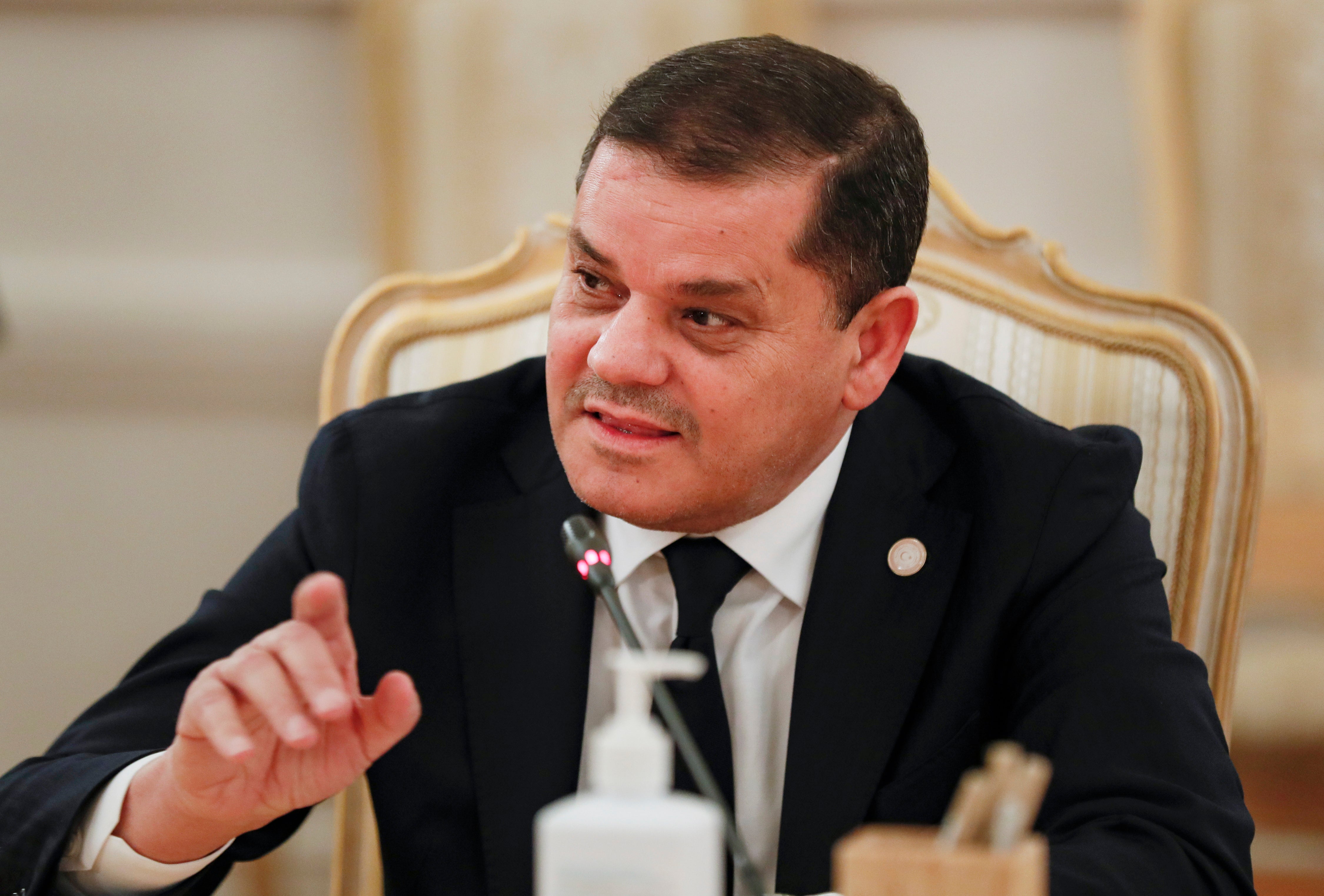Libya PM calls off Benghazi visit after security turned back
Officials say Libya's interim prime minister has called off his first visit to the country's east after an advance security team was turned back from the airport in the eastern city of Benghazi

Your support helps us to tell the story
From reproductive rights to climate change to Big Tech, The Independent is on the ground when the story is developing. Whether it's investigating the financials of Elon Musk's pro-Trump PAC or producing our latest documentary, 'The A Word', which shines a light on the American women fighting for reproductive rights, we know how important it is to parse out the facts from the messaging.
At such a critical moment in US history, we need reporters on the ground. Your donation allows us to keep sending journalists to speak to both sides of the story.
The Independent is trusted by Americans across the entire political spectrum. And unlike many other quality news outlets, we choose not to lock Americans out of our reporting and analysis with paywalls. We believe quality journalism should be available to everyone, paid for by those who can afford it.
Your support makes all the difference.Libya’s interim prime minister called off his visit Monday to the country’s east after a government advance security team was turned back from the airport in the eastern city of Benghazi officials said.
Prime Minister Abdul Hamid Dbeibah and his Cabinet were to hold a meeting in Benghazi, the main stronghold of Libya s east-based forces loyal to military commander Khalifa Hifter.
Mohamed Hamuda, a government spokesman, said late Sunday that the Benghazi meeting was postponed. He did not give a reason but said they were working to set up another date for the meeting.
A government official in the capital, Tripoli said the development came after authorities at the Benghazi airport turned back an armed entourage that was sent to secure Dbeibah’s visit.
An official with Hifter’s forces said the entourage had asked to take over the airport security during the prime minister’s visit, a demand rejected by airport officials. He said many government officials, including the head of the presidential council, had visited Benghazi and their trips were secured by forces already in the city.
Both officials spoke on condition of anonymity because they were not authorized to speak to reporters.
Dbeibah’s transitional government, appointed in February, replaced two rival administrations, one in the east and another in the west, each backed by an array of militias and different foreign powers.
Libya was plunged into chaos following a NATO-backed uprising in 2011 that toppled and later killed long-time dictator Moammar Gadhafi.
The transitional government's main goal is to lead the conflict-wrecked country through elections in December.
Meanwhile, Libya’s National Oil Corporation said it lifted a force majeure at the Marsa Al Hariga port, after the government allocated 1 billion dinars ($223 million) for the company to meet its obligations. A force of majeure is contract clause that refers to the inability of the company to meet its obligations because of extraordinary events.
Mustafa Sanallah, head of the corporation, said that oil production at the port would be resumed gradually.
The company had declared a force majeure at the port earlier this week, blaming the Central Bank of Libya for the interruption after failing to disburse a budget of nearly $223 million earmarked for the oil sector last year.
Libya’s highly prized, light crude oil is the core of the country’s economy. It has long been a factor in its civil war, as rival militias and foreign powers jostle for control of Africa’s largest oil reserves.